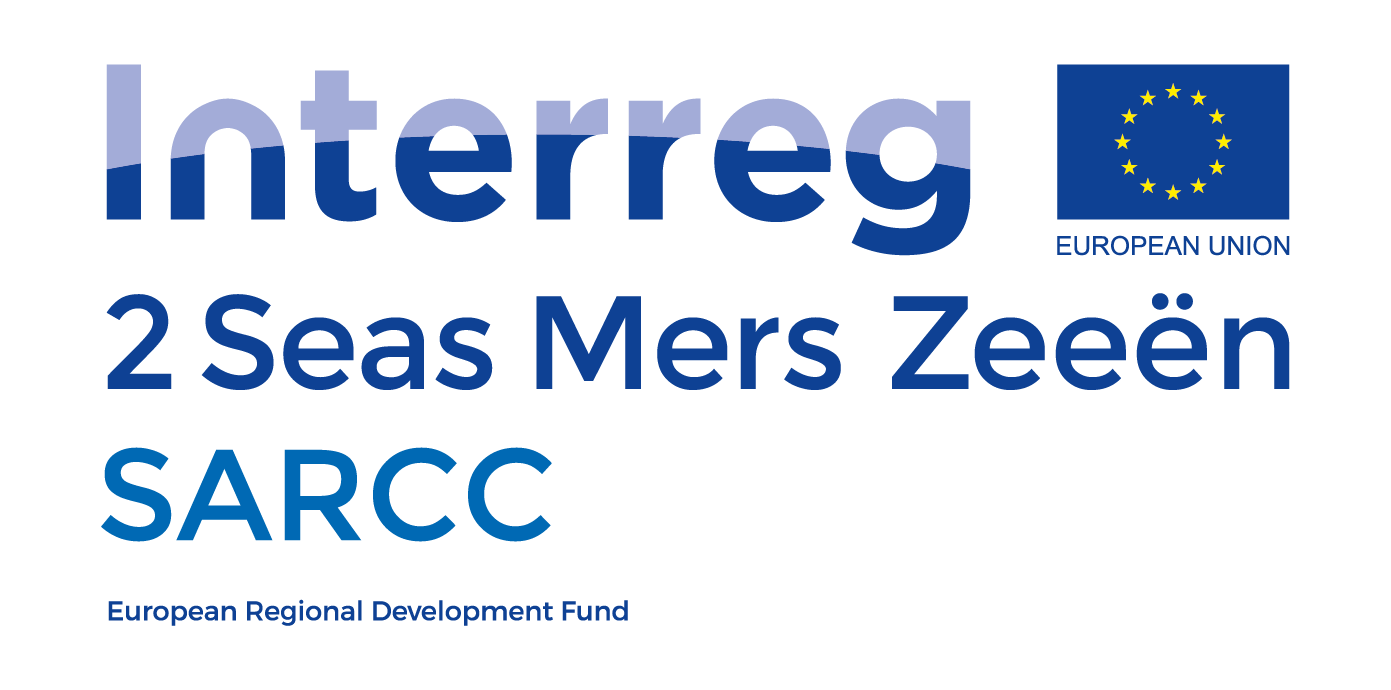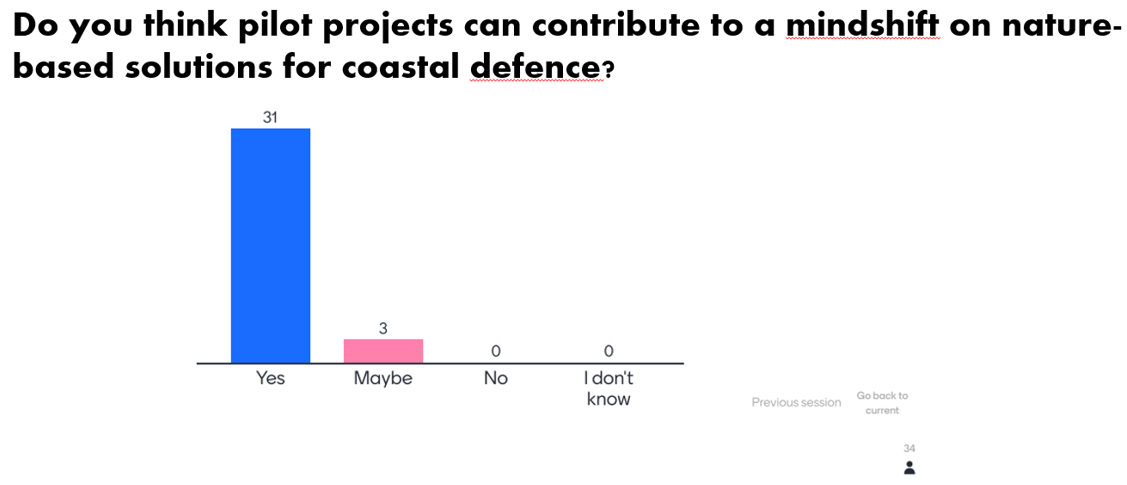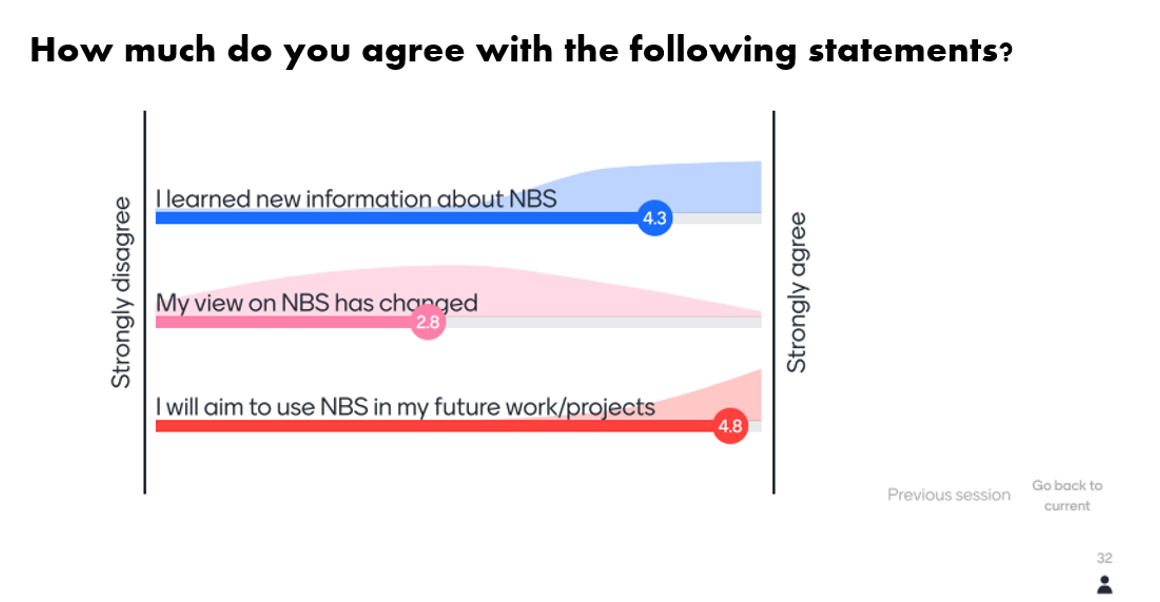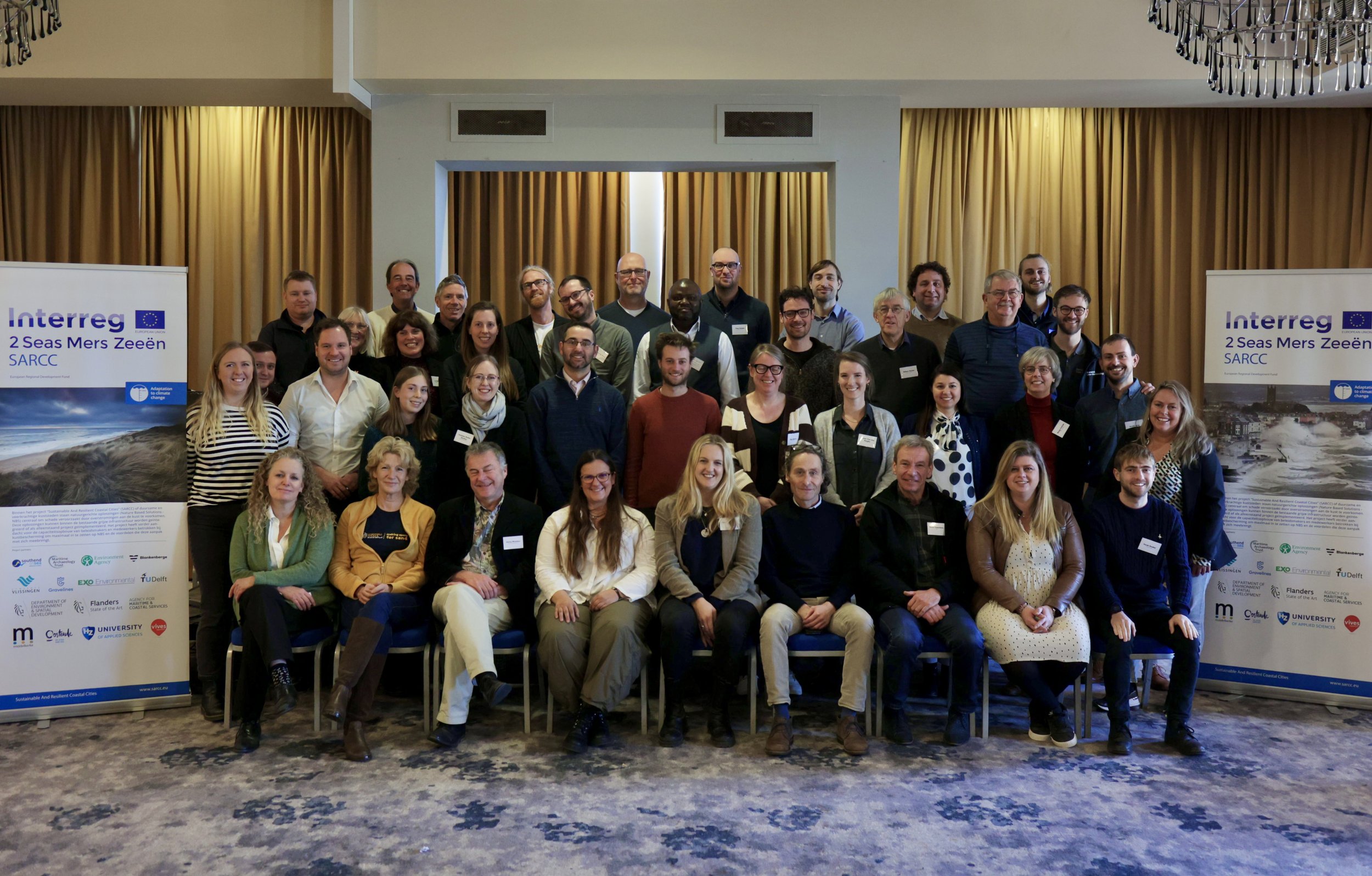SARCC FINAL CONFERENCE HIGHLIGHTS
Exo Environmental organised the final Sustainable And Resilient Coastal Cities (SARCC) conference, which brought together over 120 delegates from across Europe. The conference was held in Southend-on-Sea in a hybrid format (in person and live stream online). On our Eventbrite sign up page with a capacity of eighty, 77 people signed up to attend the conference in person. 56 people consistently attended on all of the three days of the conference. About 110 people signed up to receive the live stream of the conference, there are 399 views for the conference live streams for the three days as of the 20th of December 2022, and the number is expected to grow. There was a spread of participants from different professional background ranging from decision makers, people in academia, business, students, members of the public, to local authority officers.
Day one of the SARCC final conference
There were panel discussion wherein the different speakers had the chance to give any clarification to those both in person and online. This was also an opportunity for different participants to express their point of view. The speakers of day 1 included:
John Bennet (SARCC Project Manager) speaking on the Pressures facing coastal cities.
Michal Nekvasil (Climate Change Adaptation Expert at DG CLIMA, European Commission) who spoke about the EU instruments fostering nature-based solutions and climate resilient landscape approach.
Heather Hiburn (CEO of Thames Estuary Partnership) spoke on funding nature-based solutions challenge or opportunity?
Pippa Moore (Professor of Ecology from the Dove Marine Laboratory, School of Natural and Environmental Sciences, Newcastle University) who spoke on quantifying success of NBS projects evidence from marine artificial structures.
Garry Momber (Director of Maritime Archaeology Trust) who spoke about Engaging the public, a key for NBS mainstreaming.
In day 2 of the conference, the speakers included:
Amy Pryor, the Technical Director of Thames Estuary Partnership who presented on Innovative ways of approaching NBS in coastal and estuarine cities.
Jess Bone from MARINEFF who spoke on the Collaboration between Interreg projects and highlights of the Marineff project (http://marineff-project.eu/en/).
Marije Verlinde from Gemeente Vlissingen, Harriet Googe from the Environment Agency, Alain Mengé from the City of Blankenberge, Karel Vanackere from AGSO, Gussé Stijn from Gemeentebestuur Middelkerke, Jo Matthews from the Southend-on-Sea City Council gave lessons learned from the pilots at Netherlands, Newlyn, Belgium, Oostende, Middelkerke and South-on-sea city respectively.
Bert Van Severen and Elke Ramon from the Flemish Government presented on Engagement with decision makers in charge of coastal management.
There was also a field visit on the second half of day 2, whereby the participants had a chance see the nature-based solutions that the Southend-on-sea pilot site was carrying out.
On day 3, the different speakers and the topic they covered included:
Garry Momber from the Maritime Archaeology Trust who presented on the Implementation of the WP1 longue durée Maritime Atlas.
Fransje Hooimeijer from TU Delft presented on the Innovation in nature inclusive solutions in urban coastal landscapes.
Hanne Van den Berghe from Vives who presented on Ecosystem services.
Flavia Simona Cosoveanu from HZ University of Applied Sciences who presented on some SARCC pilots research and key outcomes.
Jolyon Sharpe from Cornwall Council and Aikaterini Konstantinou from the University of Plymouth presented on Building Community Resilience on a Dynamic Coast by Making Space for sand (https://www.makingspaceforsand.uk/).
Jo Matthews and Tom Palmer from the Southend City Council presented on the Flood and Coastal Resilience Innovation Programme.
On the last day of the conference, the feedback on how participants viewed the conference was all positive as seen on the word cloud.









